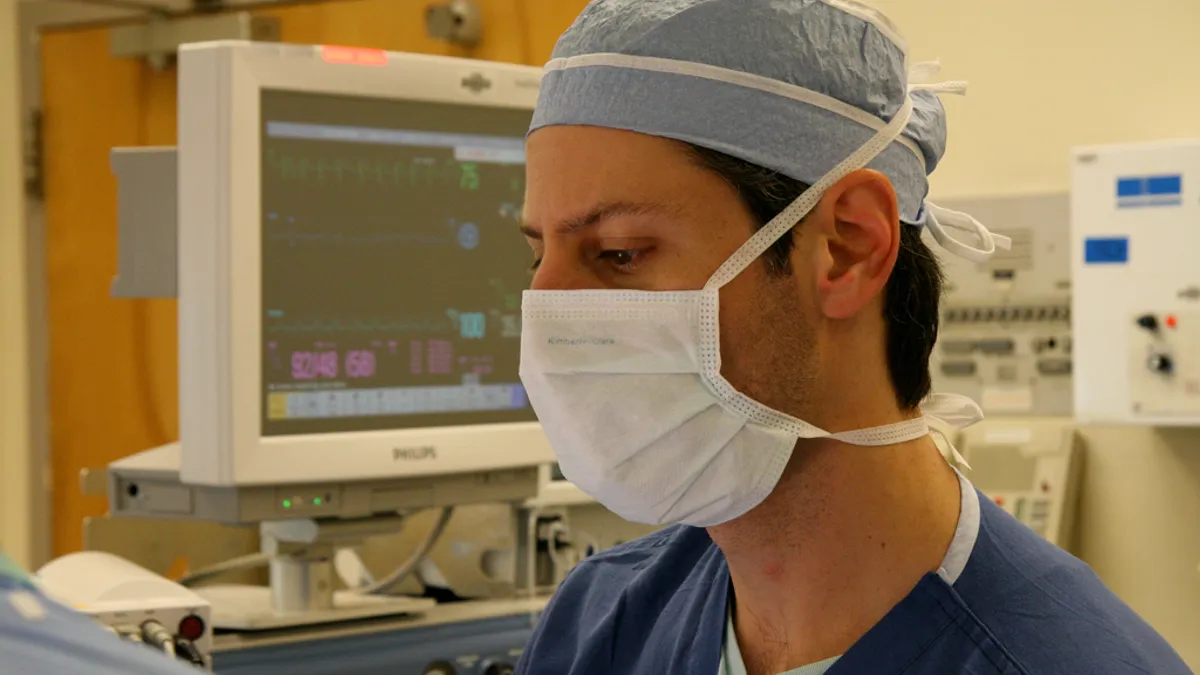Dive Brief:
- Medtronic said the first patient has been treated in a study evaluating the combined use of radiofrequency ablation and cryoablation in a surgical procedure to correct atrial fibrillation (AFib). The patient was treated at Washington University School of Medicine in St. Louis.
- In the study's ablation procedure, surgeons can use both heat, via the company's Cardioblate radiofrequency device, and cold, with its CryoFlex cryoablation device, as needed.
- The study, dubbed Terminate AF, will evaluate the safety and effectiveness of the devices in up to 160 patients with persistent AFib, undergoing open heart surgery, at up to 15 U.S. centers. Patients will be assessed at one, three, six and 12 months.
Dive Insight:
Atrial fibrillation is the most common form of irregular heart rhythm, affecting anywhere from 2.7 million to 6.1 million Americans, according to the Centers for Disease Control and Prevention. The condition is characterized by a rapid heartbeat in which the two upper chambers of the heart, or atria, quiver instead of beating efficiently. AFib increases a patient's risk of stroke from the formation of blood clots.
The condition is so prevalent that it has attracted the attention of Apple, which recently unveiled an application for its Apple Watch that is designed to detect instances of AFib.
Surgical ablation of atrial fibrillation may be considered as an option for patients after medications to restore a normal heart rate have proven ineffective or poorly tolerated, according to a 2017 consensus statement from the Heart Rhythm Society. In a cardiac ablation procedure, radiofrequency energy or cryotherapy is used to destroy the cells that are sending the erratic electrical signals causing the AFib.
Atrial fibrillation treatments are a high-growth business for Medtronic, which competes against Boston Scientific and Abbott in the space. Medtronic estimates AFib to be a $4 billion market and said devices to treat the condition generated mid-teens revenue growth for the Dublin-based company in its fiscal second quarter.
FDA cleared Medtronic's Cardioblate device in 2000 and CryoFlex in 2004.
"The Terminate AF trial provides a unique opportunity to study the combined use of two surgical ablation technologies to treat surgical patients who suffer from AF," Ralph Damiano, chief of cardiothoracic surgery at Washington University School of Medicine and Barnes Jewish Hospital, and principal investigator of the study, said in a press release. "We anticipate the trial will help us uncover important procedural insights and potentially help surgeons and heart teams treat more patients with this widespread disease."










